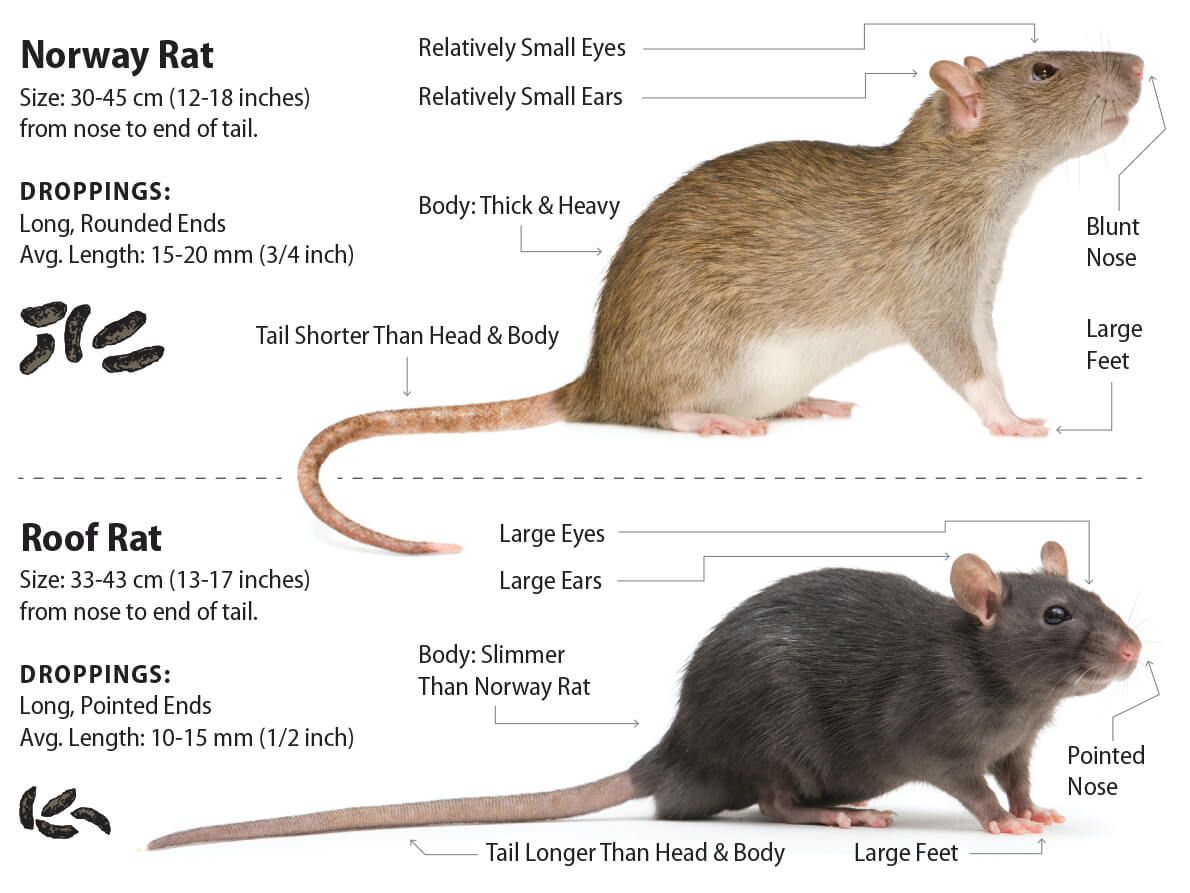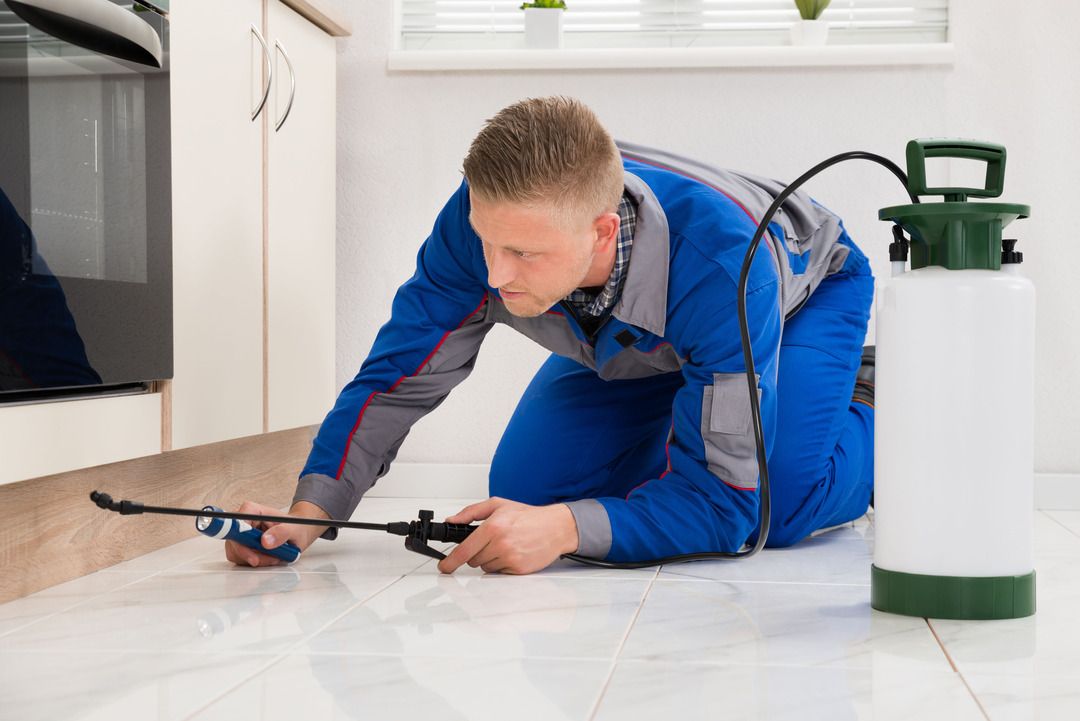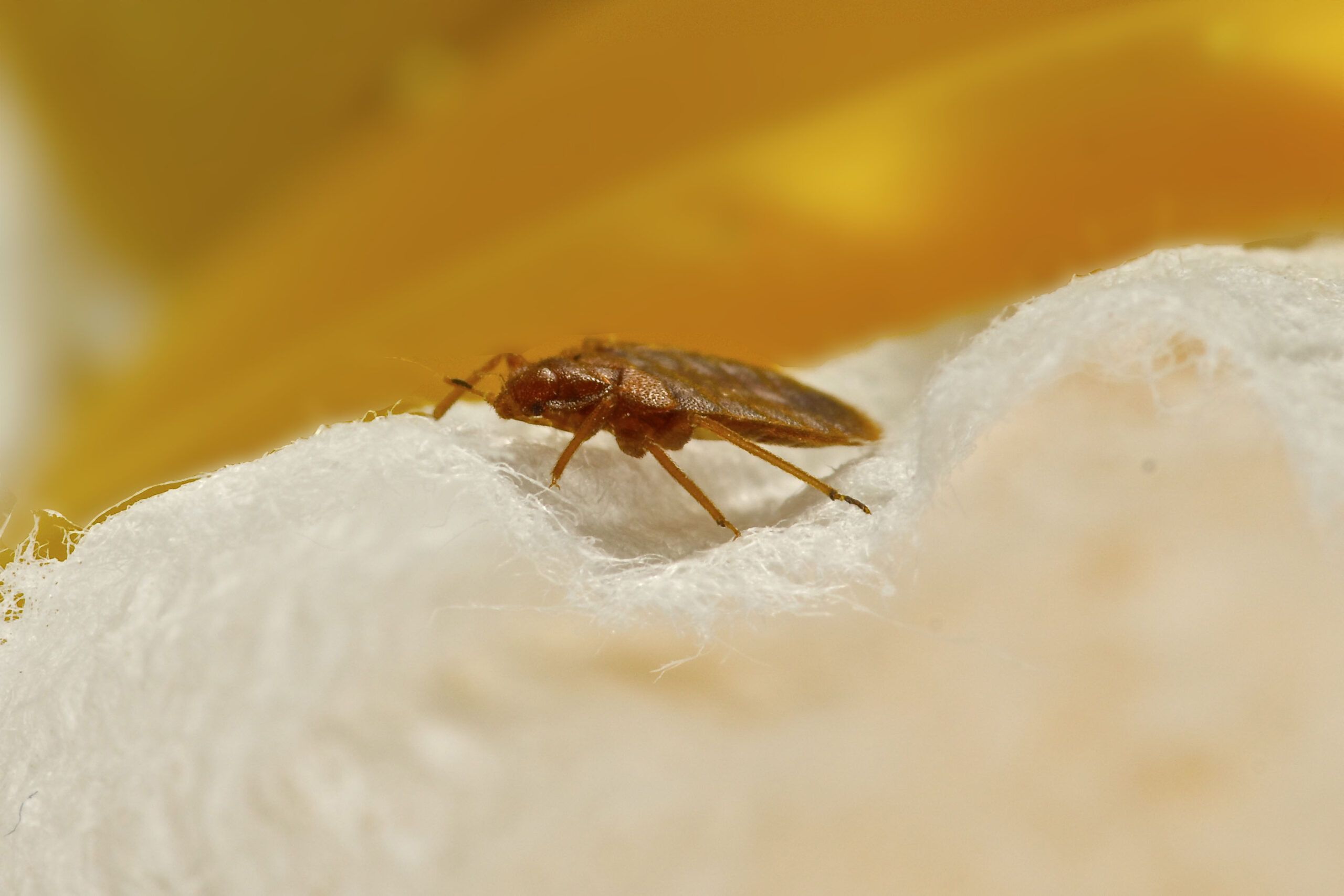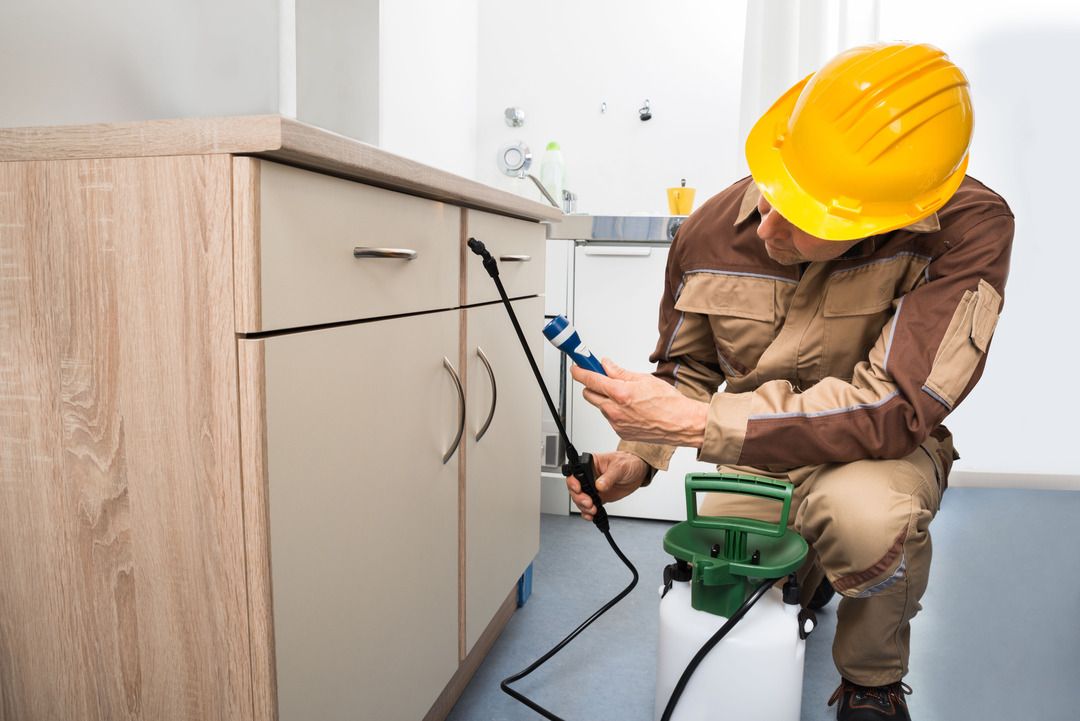ALL-STATE BLOG

All-State Pest & Lawn in your community: Bartlett, TN.

All-State Pest & Lawn in your community: Arlington, TN.

All-State Pest & Lawn in your community| Collierville, TN.

Norway and Roof Rats: Wintertime Tendencies in Residential Neighborhoods
As winter sets in and temperatures drop, many of us seek warmth indoors, but so do some uninvited guests—like Norway rats and Roof rats. These resilient creatures have adapted well to colder climates, often becoming more active during frigid months as they seek shelter, food, and warmth inside our homes. In residential neighborhoods, the onset of winter can mark the beginning of an uptick in rodent activity. Understanding their tendencies and taking preventative measures can help homeowners protect their homes and property.
Norway and Roof Rats: The Difference
Before we dive into their winter behavior, it’s essential to distinguish between these two types of rats, as they tend to differ in habitat preferences:
- Norway rats (Rattus norvegicus): Also called “brown rats,” these rats prefer to live in burrows near the ground or in basements, sewers, and other low-lying areas. They are more commonly found in sewers and underground spaces during winter.
- Roof rats (Rattus rattus): Known as “black rats,” these are more agile climbers and prefer nesting in higher places, like attics, rafters, or rooftops. They are more likely to invade upper levels of homes and buildings during colder months.
Both rats are opportunistic feeders, meaning they’ll take advantage of any available food source. During winter, as the weather becomes more severe, they move closer to human settlements in search of warmth, shelter, and sustenance.
Why Do Rats Seek Shelter in Winter?
As temperatures plummet, the food sources that Norway and Roof rats depend on become scarce outdoors. They start to look for warmth and safety inside buildings, particularly those with easy access points. Rats are great at squeezing through small openings, even as narrow as a quarter of an inch, so homes that have cracks, gaps, or loose vents become prime targets for infestation.
They are also looking for food, especially items that are easy to access and abundant, such as grains, pet food, fruit, or garbage. Kitchens, pantries, and trash bins become prime feeding grounds during winter months.
Signs of an Infestation in Your Home
If you suspect rats are invading your home during the cold season, there are several signs to watch for:
- Gnaw marks: Rats need to gnaw on materials to keep their teeth from growing too long. You may notice bite marks on food packaging, furniture, or even cables.
- Droppings: Rat droppings are small, dark, and cylindrical usually ½ to ¾ of an inch with either blunt or pointed ends. Finding droppings near food sources or entry points can indicate their presence.
- Footprints and tracks: Snow and dust can reveal rat footprints, especially near entryways or around areas where they frequently travel.
- Noises: Rats are nocturnal creatures and are most active at night. If you hear rustling or scurrying noises in your attic or walls, it could be an indication that they’ve found shelter.
- Nests: Roof rats and Norway rats will create nests out of materials like insulation, paper, and fabric. If you notice shredded material in hidden areas of your home, it may be a sign of a nest.
How to Prevent Rat Infestations During Winter
The best way to handle rat problems in residential areas is through prevention. If you’re proactive, you can minimize the likelihood of an infestation during frigid temperatures.
- Seal Entry Points: Inspect your home for any cracks or holes, especially around windows, doors, vents, and utility lines. Seal gaps with materials that rats can’t gnaw through, such as steel wool or metal mesh.
- Trim Trees and Shrubs: Roof rats are climbers, so overhanging branches can provide access to your roof. Trim trees and shrubs that touch the sides of your home to discourage rats from entering through the roof.
- Keep Food Sources Tightly Sealed: Store food in airtight containers, and make sure that garbage bins are tightly sealed. Don’t leave pet food out overnight and always clean up any crumbs or spills immediately.
- Maintain a Clean Yard: Remove debris and clutter in your yard that can serve as nesting areas for rats. Keep firewood stored away from your home, as rats like to hide in wood piles.
- Call a Professional: If an infestation persists, consider contacting a pest control expert such as All-State Pest & Lawn. Professionals can provide rodent-proofing services, identify weak points in your home’s defenses, and eliminate rats effectively.
The Dangers of a Rat Infestation
Rats may seem like a nuisance, but they can cause significant damage to your home. Norway and roof rats can chew through electrical wires, insulation, and even structural materials, leading to costly repairs. Additionally, they are known to spread diseases such as salmonella, leptospirosis, and hantavirus, which can pose serious health risks to humans and pets.
Conclusion
As temperatures drop, Norway and roof rats seek refuge in the warmth of our homes. By being vigilant and taking preventive measures, homeowners can avoid the frustration and damage caused by these resilient creatures. If you’re dealing with a rat issue, remember that swift action is key—ensure your home is sealed, food sources are controlled, and rodent traps are in place to protect your family from wintertime intruders.
By staying proactive, you can maintain a rat-free home, even during the coldest months.

10 Dangers of Avoiding Pest Control

9 Places to Look For Bed Bugs
If you’ve recently discovered bed bugs in your home, you’re certainly not alone. According to Grand View Research, 89% of pest professionals stated they have encountered bed bugs in apartments and condominiums. Bed bugs can be tricky little critters to get rid of, but having a good understanding of where they like to hide is half the battle. Keep reading to learn from pest control professionals about the top places you should inspect when checking for bed bugs. With a little diligence, you can get these pests under control and protect your home!
1. Mattresses and Box Springs
These are ground zero for bed bugs. They love to hang out in the seams and tufts of mattresses and box springs where they can find plenty of food and hide from pest professionals. Be sure to inspect the entire perimeter of both your mattress and box spring, lifting and unfolding seams. Pay close attention to areas near the head and foot of the bed. Even a small infestation can escalate quickly if not addressed. Calling in professional pest control services is a smart first step.
Bed bugs often hide in the piping along the edges of mattresses, under buttons, and inside any small folds or creases. Check any labels or tags attached to your mattress, as these can provide additional hiding spots. For box springs, the fabric cover is a prime location for bed bugs to nest. Be thorough in your inspection, lifting the box spring to examine the underside and interior framework.
Using a flashlight can help you spot the small, reddish-brown bugs and their tiny white eggs. Look for dark spots of excrement or rust-colored stains from crushed bugs, as these are common signs of an infestation. Regularly vacuuming your mattress and box spring, encasing them in protective covers, and maintaining a clean sleeping area can help prevent bed bugs from taking up residence. If you suspect an infestation, immediate professional treatment is crucial to prevent the spread and ensure complete eradication.
2. Bed Frames and Upholstered Furniture
Next, shift your focus to your bed frame and any upholstered furniture nearby like couches or chairs. Bed bugs tend to move from the bed to other sites, so these are also prime real estate. Use a flashlight to peer into all cracks and crevices. Check especially around wood spindles, joints, and places where dust collects. Upholstered furniture sometimes needs to be disassembled for a proper inspection. Don’t forget cushions and mattress protectors! With patience and a keen eye, you’ll be able to spot any bed bugs that are lingering around your bed.
3. Walls and Electrical Sockets
Though they aren’t as common, bed bugs that stay on the walls near the bed and electrical sockets are worth checking for. Use a flashlight to peer inside sockets and the space between outlets and wall plates. Sometimes bed bugs will congregate in these cozy nooks and crannies. Our professionals have found that the walls themselves should be inspected within two to four feet of the bed. Lift or move wall decor and peer into crevices and joints to find any lingering bed bugs. Overall, keep an eye out for any signs of fecal staining or live bed bugs climbing on surfaces. Professional pest control services are best equipped to thoroughly check these areas.
4. Bedding and Linens
Bedding and linens harbor bed bugs too, so don’t forget to inspect yours carefully. Start by stripping the bed completely by removing sheets, blankets, and pillowcases. Feel along seams and edge folding for any bed bugs trying to hitch a ride. Check pillows by removing their cases and inspecting the tags and seams. For storage, tie sheets and pillowcases closed or place them in a hot dryer to kill any lingering bed bugs. Launder clothes and linens in the hottest water possible and dry on the highest heat setting. This will help control the spread while you contact local pest control services for treatment.
5. Behind Pictures and Wall Decor
Have you noticed any itchy bites but can’t find the source? Check meticulously behind wall hangings and picture frames near sleeping areas. The little space between the wall and the backside of the frame is a perfect hiding spot. Lift each frame or move ceramic and wood decor pieces to peek behind. Brush your hand across to feel for bed bugs and use a flashlight to get a clear view. It only takes disturbing one to discover a much bigger infestation back there. Enlisting professional pest control services to thoroughly check hidden spaces is prudent.
6. Furniture Legs and Baseboards
Inspect the bottom few inches of furniture legs and adjacent areas, plus baseboards near the bed. When populations boom, bed bugs will migrate further afield seeking food and shelter. You may find adults or egg casings stuck to cracks and crevices around furniture legs, especially near the floor. Baseboards are also prime real estate, so use a flashlight to peer into the gap where they meet the flooring material. While inconvenient, moving furniture is necessary to access these difficult-to-see places that often go overlooked. Just a few early detections can mean successful treatment with pest control services.
7. Windows, Curtains, and Blinds
It’s rare but possible for bed bugs to gain entry through windows, and the surrounding areas provide ample hiding places. Inspect window frames, window sills, window tracks, and curtains. Use a flashlight to peer into any crevices or gaps. Sometimes bed bugs will gather in these locations and hitch a ride indoors on clothing or belongings. Regular cleaning and inspecting can prevent populations from forming around your windows. Contacting professional pest control services right away for an assessment is wise if you discover any bed bugs near windows.
8. Electronic Devices and Chargers
In modern homes, it’s also worthwhile to inspect electronic devices left near sleeping areas, like phones, tablets, laptops, and charging cables. Bed bugs are adept hitchhikers and these make convenient rides indoors. Use compressed air to blow into charger ports and tightly folded areas like cable ties. Check the backsides of devices for any flattened bed bugs trying to cling on. These sneaky spots deserve a once-over, as disturbing a population can aid in pest control service treatment plans. Always practice precaution when transporting devices between infested and non-infested areas.
9. Clutter and Obstructions
Another tricky spot to inspect is any clutter, stored items, or furniture obstructing easy access around beds and common rest areas. Areas like boxes under beds, overcrowded closets, piled clothing, and furniture pushed flush invite any bed bugs to gather unchecked. Take time to move larger furniture pieces if you’re able and thoroughly sift through clutter. Carefully inspect behind, under, or within stored boxes, bins, or piles on shelves. These hard-to-reach places can harbor thriving populations that spread bugs elsewhere if they’re not addressed with treatment by professional pest control services.
Hopefully, this guide helped provide some extra insight into comprehensive bed bug inspection. Some places, like deep within mattress seams or furniture, can be missed without a thorough approach. Don’t forget to follow these steps too: monitor for signs of infestation, enact integrated pest management practices, and most importantly, contact reputable pest control services for an effective treatment plan. With diligence and professional help, you can remove bed bugs successfully. If you suspect you have bed bugs in your home, call All-State Pest & Lawn immediately for a professional treatment plan.

3 Reasons to Call Pest Control ASAP
Some insects are very beneficial to the ecosystem, such as grasshoppers and bees. However, many are a nuisance and can affect your quality of life and overall home investment. If you believe you have an infestation requiring rodent, mosquito, roach, or termite control, you should seek assistance right away. Here are reasons you shouldn’t hesitate to call an exterminator when you suspect a pest infestation.
1. Health
When you do what you can to take care of your health by exercising, drinking water, and eating well, the last thing you need is to ignore a pest infestation. Vermin from rodents to bedbugs can affect your mental and physical health in ways you may not be prepared for. Ticks and fleas can be a major nuisance to your animals. If you have a cat or a dog, especially a dog, you may notice they’re stressed out and consistently scratching after being outside. That can happen when you have a tick infestation on your landscape. Ticks can multiply very quickly. When your animal is playing in the grass, those ticks take the opportunity to latch onto their skin and suck blood from them. It can cause your animals mental distress, and you would have to take them to the vet to properly have ticks removed.
Ticks aren’t just a problem with animals. They can also latch onto a human and cause problems such as Lyme disease. You know you have Lyme disease through different stages of symptoms. Several days after being bitten, you’ll notice a circular rash in addition to fatigue, headache, chills, and fever. If it continues to be untreated, it may escalate into short-term memory loss, arthritis, and numbness in the hands and legs. In the worst cases, it can eventually affect your nervous system by causing nerve inflammation or meningitis. Some people even experience heart problems from untreated Lyme disease. Therefore, it’s something to take very seriously.
If you have a mosquito infestation, you have to worry about having welts on your skin from all the bites that build up. Mosquitoes, like ticks, are blood suckers and attack humans and animals alike. The wrong mosquito can come with more than some itchy bumps. Mosquitoes are associated with the spread of the West Nile virus, the Zika virus, as well as malaria.
A rodent infestation can contaminate your food supply. Rodents will defecate and urinate just about anywhere, including the food areas that they roam around in. Therefore, if you notice rodent droppings or spots of urine, you must sanitize that area as their urine is poisonous. Plus, you don’t want to eat anything they may have gotten into. These nasty rodents can also spread rabies, and some of them may be vicious enough to bite.
When you take your summer vacation, be very careful of your accommodations. Read reports to see if any reviews mention bedbugs. Unfortunately, bed bugs have been found in as many as 68% of American hotels, even 5-star ones, according to Bed Bug Lawyer. Bed bugs aren’t harmful in terms of disease, but can affect mental health and sleep. Bedbugs get their name because they tend to congregate around your bed at night. That is often where they have their nest, which may be hiding in mattresses and within your headboards. When you turn off the light to fall asleep, these bugs come out and may bite and feast on your blood. No one wants to deal with the idea of bugs biting them in their sleep, so that can be a culprit for sleep issues. When you’re too anxious to fall asleep, that can lead to other problems like inflammation, heart issues, weight issues, and brain fog.
2. Property Protection
An untreated vermin infestation does more than hurt humans. It can also hurt the property that you’ve put so much into. Your home is your castle, and you don’t want its value to decrease or become worthless. If you’re not careful, that can happen depending on the type of infestation you have. According to Consumer Reports, over $5 billion in property damage happened due to a termite infestation in American homes. This is why termite control is so important.
Termites are known for their love of eating wood, which is what your foundation is made of. Your home security fence, garden fences, and even some of your furniture can also be affected by hungry termites. That’s a lot of damage you would have to replenish or cut your losses at. Termites can even destroy your home in about three years, according to the CDC. That’s why it’s imperative to call termite control as soon as you realize you have an infestation.
Rats and their sharp teeth can also do their share of damage. Because of their sharp teeth, they can cut through electrical wiring and cause that to short circuit and need expensive repairs. They can easily cut drywall, wood, and other materials that are throughout your home structure. The greater the infestation becomes, the more damage it can do.
3. Early Prevention
The last thing you want is to become overrun by a pest infestation. Unfortunately, there are vermin that can multiply to levels you may not be aware of. For example, rodents can have several litters of pups each year. The reason for this is their gestation period is very short. A female rat can go from the initial gestation to birth faster than you think. Therefore, if you have a rodent infestation, you can get to the point where your home is overrun with ratholes, rat urine, poop, and other issues that will make your home unlivable.
As mentioned, termites can destroy your home in a few years. With solid termite control early on, you can prevent needing foundation remediation efforts or rebuilding a wooden fence you’ve already spent money on. Mosquitoes can lay more eggs than you can think of in a sitting pool of water. Can you imagine the number of mosquitoes that could be buzzing around your home after only a couple of them laid eggs? You may be in a situation where it would feel almost impossible to go outside on your property in the summertime. However, those mosquitoes may also likely get inside and cause the same amount of havoc.
When you handle early pest discovery and prevention, you can get peace of mind that you’re not dealing with a rodent running around or termites destroying your property. It’s also more cost-effective to deal with it early on. Exterminators can take less time to handle the problem since they’re not overrun with a huge population of rodents and roaches or a cloud of mosquitoes buzzing around. Early prevention can help you save as many elements on your property as possible so you don’t have to spend money that you don’t have.
As you can see, you shouldn’t ignore pest infestations. One roach or mouse can quickly turn into hundreds. Don’t put yourself and your family through the stress of a vermin infestation. These insects and rodents can damage your home, spread disease, cause you to lose sleep, and quickly outnumber you. Our family-owned business has been operating since 1943. Call All-State Pest & Lawn for issues with bed bugs, rodents, mosquitoes, and termite control in the Memphis area.

10 Pests to Call Professionals to Exterminate
Insects might seem like nothing more than pests, but they do serve some important duties — primarily as food for other animals — but should rarely be tolerated in your home. Your home is your castle and should be treated as such, especially with pest control management. Here are 10 insects you shouldn’t tolerate in your home and reasons why you should call a pest control company or exterminator as soon as possible.
1. Hornets
What is worse than having hornets hanging out in your yard, ready to sting you or your family at any time? Hornets living in your home’s interior, ready to drop down and say “hi” every time you open your door. That’s a big nope from most people and shouldn’t be tolerated for even a second.
Thankfully, pest teams understand this problem and can help you. Exterminators have various hornet-devastating sprays (that won’t harm your family) that will help keep hornets away! While we can’t completely clear your yard of hornets, we can help treat them!
2. Aggressive Bees
The honeybee and even the bumblebee are incredibly beneficial, as their pollination literally keeps the planet alive, and they should be kept alive whenever possible. However, some bees, including yellowjackets, are more aggressive than others. If you are noticing large bees or even wasps, you’ll want to talk with your pest team to learn which bees you should or shouldn’t keep in your yard. They can even come up with treatment plans that get rid of some, but not all, of these insects. In this way, you can keep your yard safe (a huge deal if you have kids) while also keeping your plants pollinated.
3. Ants
If you have ants in your home, you’re not alone; according to Get One Desk, about 50% of all Americans have ant problems in a year. That’s millions of people dealing with billions of ants: not good. Ants not only damage your home but can get into your food and even bite your kids and pets.
Can DIY ant treatments help out here? While those store-bought options may temporarily take care of the problem, a severe infestation can’t be handled this way. Instead, you’ll definitely need a professional who can help. Doing so will stop your home from getting taken over by ants for good.
4. Termites
Termites devastate homes. They can spread rapidly throughout a home, feeding on wooden beams, plants, and even books! Left unchecked, you’ll get millions in your home in a few years.
Like ants, termites have the nasty habit of getting just about everywhere in your home, even often spreading to hard-to-reach areas like the basement. You can’t let them hang out here because they’ll cause so much damage. Instead, just call a team to get help; you’ll be glad you took that step.
5. Bed Bugs
Do you have bed bugs? You probably don’t think so, but there’s an unfortunate truth few people want to face. According to Pest World, 97% of pest control companies have treated bed bugs in the last few years. These biting insects will leave small welts on your skin (the easiest tell-tale sign) and can hide from DIY pest control very well.
Bed bugs can sometimes go unnoticed and be hard to track down. For example, even people who know that they have bed bugs might struggle to physically find them in their homes. Pest management experts are no fools and are able to track down these bed bugs easily. As a result, they can get them out of your home for good. Calling a pest management company if you think you have bed bugs is an essential step you shouldn’t skip.
6. Spiders
Spiders are a bit like bees in some ways because they provide real benefits. While they may look gross and threatening, spiders actually chow down on flies and other insects and work well for pest management. That said, they’ve made this list of pests you probably don’t want wandering in your home.
General spiders aren’t that big of a deal, but poisonous ones can’t be tolerated for obvious reasons. You probably know the black widow on sight, but the brown recluse is a little trickier to spot. Just get rid of them all: it’s the only way to be sure. If you’re worried about the spiders you see in your home, call an exterminator to take a look.
7. Roaches
Intelligent, daring, disgusting — that’s the cockroach in a nutshell. Unlike spiders and bees, they provide your home with no benefits and spread as rapidly as termites, in our experience. Roaches spread disease, get into your food, and can even leave behind lots of bites —in fact, they don’t bite in defense, like most insects, but to literally eat your flesh. Thankfully, a pest management team can get these (often hard to remove) bugs out of your home through specialized treatments. Don’t hesitate to call a company to take care of these pests right away.
8. Fleas
The thing about fleas is that they aren’t going to bother you too much, as most can’t bite through human skin. Instead, they pester your pets. If you have dogs and cats, fleas will hop back and forth between them and leave behind lots of welts. Fleas can also cause various pet diseases, which are not good.
Flea-management systems, such as sprays and collars, can help out a lot here by killing them on your pet’s body. Some people even take their pets out of their homes for a week or two to get rid of fleas. That said, professionals are helpful if your flea problem has gotten out of control. Be sure to protect your pups and furry friends by calling on professionals.
9. Ticks
While fleas may be annoying to your pets, ticks can cause issues for both your pets and you as ticks can not only invade your pets but burrow into your skin. They also spread diseases and can be hard to spot. If you think your home or yard has a high level of ticks, it’s time to call a pest team to get them under control.
Ticks typically spread from your yard into your home, and then they settle in for the long haul. After all, there will be lots of warm bodies there to feed on, making it their ideal home. While ticks can seem annoying, they can also cause bigger problems such as Lyme disease. Because of this, you will want to take care of them as soon as possible! If you or your pets spend a lot of time outside, be sure to check for ticks.
10. Mice and Rats
While mice or rats may look cute and harmless, they are still considered a pest in your home. If you notice mice or rats under your cabinets or scurrying around your home, you will want to call a pest control company immediately. Mice and rat infestations pose health risks due to potential disease transmission through droppings and urine. Aside from that, mice can cause structural damage through chewing through wires or even insulation.
Working with a pest control team can transform your home and keep it safe, especially from very dangerous insects, and minimize potential complications. That makes it essential (and we mean that) to call a professional right away to get support. We’re here for you; with years of experience, we truly understand pest management. Just call us at All-State Pest & Lawn to get started, and we’ll do what we can to help.
The Crucial Role of Spring Pre-emergent in Tackling Summer Annual Weeds in Memphis, TN
Moles in Memphis: Understanding Winter Habits and Effective Control with All-State Pest and Lawn
Still unsure? Don’t worry a moment longer.
Call us today at 901.757.9111 and let us help you rid your home of these pests before any more damage can be done.